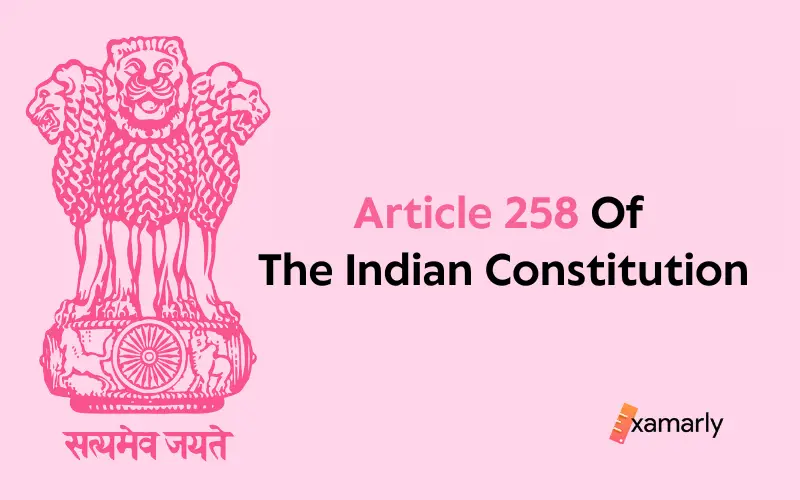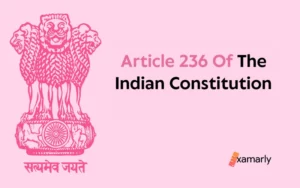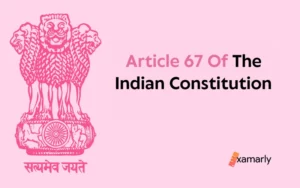Article 258 of the Indian Constitution talks about the power and authority of the Parliament over the state in the context of implementing and imposing powers on a State Legislature.
It also reflects on the involvement of the President of India regarding certain powers that are to be entrusted and exercised on a State.
Let us delve deep into Article 258 of the Indian Constitution and get all the concepts present in the clause in it.
- Article 258 of the Indian Constitution – In Detail
- Article 258A of the Indian Constitution – In Detail
- Summing Up
- FAQs
- What is the purpose of Article 258?
- Can the President delegate all functions of the central government to a state government?
- Can the President delegate function to a state government unconditionally?
- Can the state government refuse to accept the delegated functions?
- Can the state government delegate the delegated functions to another authority?
Article 258 of the Indian Constitution – In Detail
We will break down and analyze each and every clause present in it to have an in-depth understanding of what is being said and done.
Clause 1 – As it is & Explained
(1) Notwithstanding anything in this Constitution, the President may, with the consent of the Governor of a State, entrust either conditionally or unconditionally to that Government or to its officers functions in relation to any matter to which the executive power of the Union extends
The first clause of Article 258 of the Indian Constitution says that the President of India with a mutual discussion with the Governor of the state, can authorize that State Government or the officers present in the Government to carry out the functions in such matters where the Union Government has the authority to execute power into matters that are of the State.
This clause also says that the President can do so despite anything mentioned in our constitution.
Clause 2 – As it is & Explained
(2) A law made by Parliament which applies in any State may, notwithstanding that it relates to a matter with respect to which the Legislature of the State has no power to make laws, confer powers and impose duties, or authorise the conferring of powers and the imposition of duties, upon the State or officers and authorities thereof
The second clause of Article 258 of the Indian Constitution says that the law that has been made by Parliament which applies in any state may, despite the fact that it relates to a subject in which the legislature of the state does not have the authority to make laws, confer powers and impose duties, or authorise the conferring of powers and the imposition of duties, upon the state or officers and authorities of the state.
This is the case even though the subject of the law is one in which the legislature of the state does not have the authority to make laws.
(3) Where by virtue of this article powers and duties have been conferred or imposed upon a State or officers or authorities thereof, there shall be paid by the Government of India to the State such sum as may be agreed, or, in default of agreement, as may be determined by an arbitrator appointed by the Chief Justice of India, in respect of any extra costs of administration incurred by the State in connection with the exercise of those powers and duties
Any additional administrative costs incurred by the State in connection with the exercise of powers and duties conferred or imposed pursuant to this article shall be reimbursed by the Government of India to the State in an amount agreed upon or, in the absence of agreement, as determined by an arbitrator appointed by the Chief Justice of India.
Related – Article 263 Of The Indian Constitution
Article 258A of the Indian Constitution – In Detail
Article 258A of the Indian Constitution can be understood as an extension of Article 258 of the Indian Constitution. It talks from the perspective of how the Governor can delegate the responsibilities and power to the officers of the State Government or to the Government itself.
Let us have a look at the clause and break it down to have an in-depth understanding of what is being said in the Article.
Notwithstanding anything in this Constitution, the Governor of a State may,
with the consent of the Government of India, entrust either conditionally or
unconditionally to that Government or to its officers functions in relation to any
matter to which the executive power of the State extends.
The clause says that the Governor of a State may, with the approval of the Central Government of India, delegate certain or all of the State’s administrative powers to the Central Government or its officers, notwithstanding any provision of this Constitution to the contrary.
Summing Up
Article 258 of the Constitution of India empowers the President of India to entrust either conditionally or unconditionally, to the Government of any State, functions in relation to any matter to which the executive power of the Union extends, if the President is satisfied that circumstances exist which render it necessary to do so in the national interest.
In other words, Article 258 of the Indian Constitution gives the President the power to delegate certain functions of the central government to a state government, if deemed necessary in the national interest.
This power is typically exercised in cases of national emergencies or when there is a need for coordination between the central and state governments on a particular issue.
FAQs
What is the purpose of Article 258?
Article 258 empowers the President of India to delegate certain functions of the central government to a state government if deemed necessary in the national interest. This power is typically exercised in cases of national emergencies or when there is a need for coordination between the central and state governments on a particular issue.
Can the President delegate all functions of the central government to a state government?
No, the President cannot delegate all functions of the central government to a state government. The President can only delegate those functions that fall within the executive power of the Union, as outlined in the Constitution of India.
Can the President delegate function to a state government unconditionally?
Yes, the President can delegate functions to a state government either conditionally or unconditionally, depending on the circumstances.
Can the state government refuse to accept the delegated functions?
No, the state government cannot refuse to accept the delegated functions. The state government is required to carry out the delegated functions as per the terms and conditions set by the President.
Can the state government delegate the delegated functions to another authority?
The state government may delegate the delegated functions to another authority, but only with the prior approval of the President. The state government must also ensure that the authority to which the functions are delegated has the necessary expertise and resources to carry out the functions effectively.






